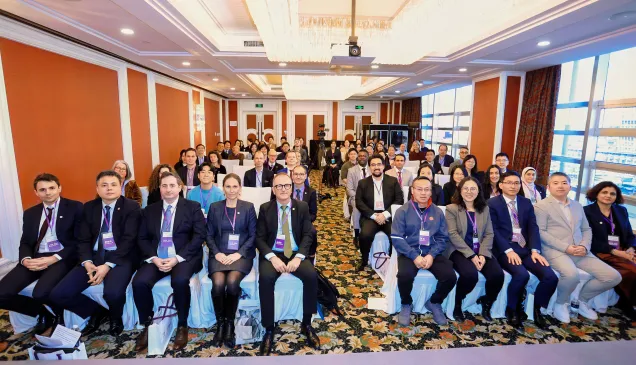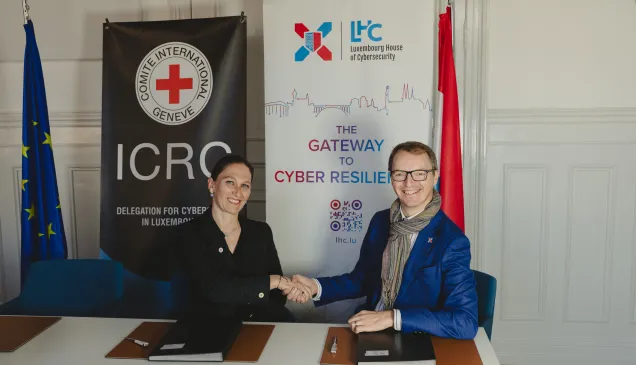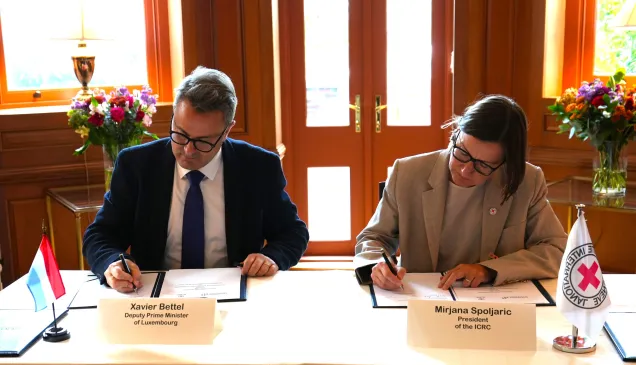Misinformation, disinformation and hate speech - Questions and answers
The ICRC takes the issue of misinformation, disinformation, and hate speech (MDH) during armed conflict seriously and is dedicated to finding effective ways to address this problem and its consequences.
How is misinformation, disinformation and hate speech (also known as MDH) harmful for populations affected by conflict and humanitarian operations?
Misinformation and disinformation can increase people's exposure to risk and vulnerabilities. For example, if displaced people in need of humanitarian assistance are given intentionally misleading information about life-saving services and resources, they can be misdirected away from help and towards harm.
Hate speech, meanwhile, contributes directly or indirectly to endangering civilian populations' safety or dignity. For example: When online hate speech calls for violence against a minority group, it can contribute to psychological and social harm through harassment, defamation, and intimidation.
Misinformation and disinformation can also impact humanitarian organizations' ability to operate in certain areas, potentially leaving the needs of people affected by armed conflict or other violence unmet. When false and manipulated information spreads, it can erode trust within communities and damage the reputation of humanitarian operations.
For an organization like us, whose work is founded on trust, the spread of disinformation, especially where tensions are high, could quickly lead to humanitarian personnel being unable to leave their offices, distribute live-saving assistance, visit detainees, or bring news to people who have lost contact with a family member.
What are other examples of real harm caused by MDH?
When rumors, stigma and harmful narratives spread, it may lead to a situation where people already displaced, and families associated with one or the other party to a conflict are unable to safely return to their place of origin.
False narrative about a humanitarian service may lead loss of trust by people affected and prevent them from accessing services essential to their wellbeing, safety or dignity. For example, people becoming afraid to receive a vaccine, or a health service, others refusing to receive the body of the dead family member because they no longer trust the information they've received.
The spread of MDH can fuel acts of violence in a community, including against vulnerable groups, minority groups, ethnic groups and against organizations including humanitarian or medical teams.
When the distortion of information jeopardizes the ability of conflict-affected people to make well-informed decisions – ones relevant to vital needs such as access to safety, shelter and healthcare – the results can lead to real world harm.
With the spread of MDH in a community – organized or not - an environment of hate and inciting violence online and in the media can lead to loss of life, and other harmful consequences on people's safety and dignity.
Does spreading disinformation violate IHL?
Certain uses of disinformation and hate speech do violate international humanitarian law and other rules of international law. Concretely, IHL prohibits the encouragement of IHL violations (including war crimes), online or offline. Likewise, it prohibits "acts or threats of violence, the primary purpose of which is to spread terror among the civilian population". This means that threatening violence is prohibited if it can be shown that the primary purpose of such activities is to spread terror among the civilian population.
Furthermore, IHL prohibits inciting violence against humanitarian operations and humanitarian personnel, and spreading disinformation aimed at obstructing or frustrating their work is difficult to reconcile with IHL. States and other parties to armed conflicts must not only abstain from such operations but also protect impartial humanitarian organizations when private actors, including companies, threaten their operations.
However, not all misinformation or disinformation during armed conflict is necessarily covered by IHL. That said, for decades, there has been consensus that impartial humanitarian operations and the humanitarian personnel involved therein must be respected and protected.
How is the ICRC tackling the issue of MDH?
The ICRC takes the issue of misinformation, disinformation and hate speech (MDH) during armed conflict seriously and is dedicated to finding effective ways to address this problem and its consequences.
However, the challenge is daunting because technological developments combined with politicization and polarization are fueling the speed, magnitude and complexity of the problem.
It is absolutely essential for us to navigate these challenges especially because of the very real impacts its consequences have on civilians such as the displaced and families of missing persons. Further, it is also vital to maintaining the trust of the people and communities we work with, while avoiding being instrumentalized for political purposes.
With digital threats in armed conflicts likely to increase and become more sophisticated and coordinated, The ICRC calls on all relevant stakeholders, including States, media, and tech and other private companies, to respect and protect impartial, neutral, and independent humanitarian organizations and prevent such disinformation campaigns from occurring and expanding. We also encourage all to be vigilant when sharing information and help stop the spread of misinformation, disinformation, and hate speech. The ICRC is committed to working with partners to address the root causes of MDH and promote a more informed and peaceful world.
Resources for further reading
ICRC Law and Policy Blog
You can't handle the truth: misinformation and humanitarian action
Safeguarding humanitarian organizations from digital threats
International Review of the Red Cross
Q&A: Humanitarian operations, the spread of harmful information and data protection
Liar's war: Protecting civilians from disinformation during armed conflict
Protecting the global information space in times of armed conflict



